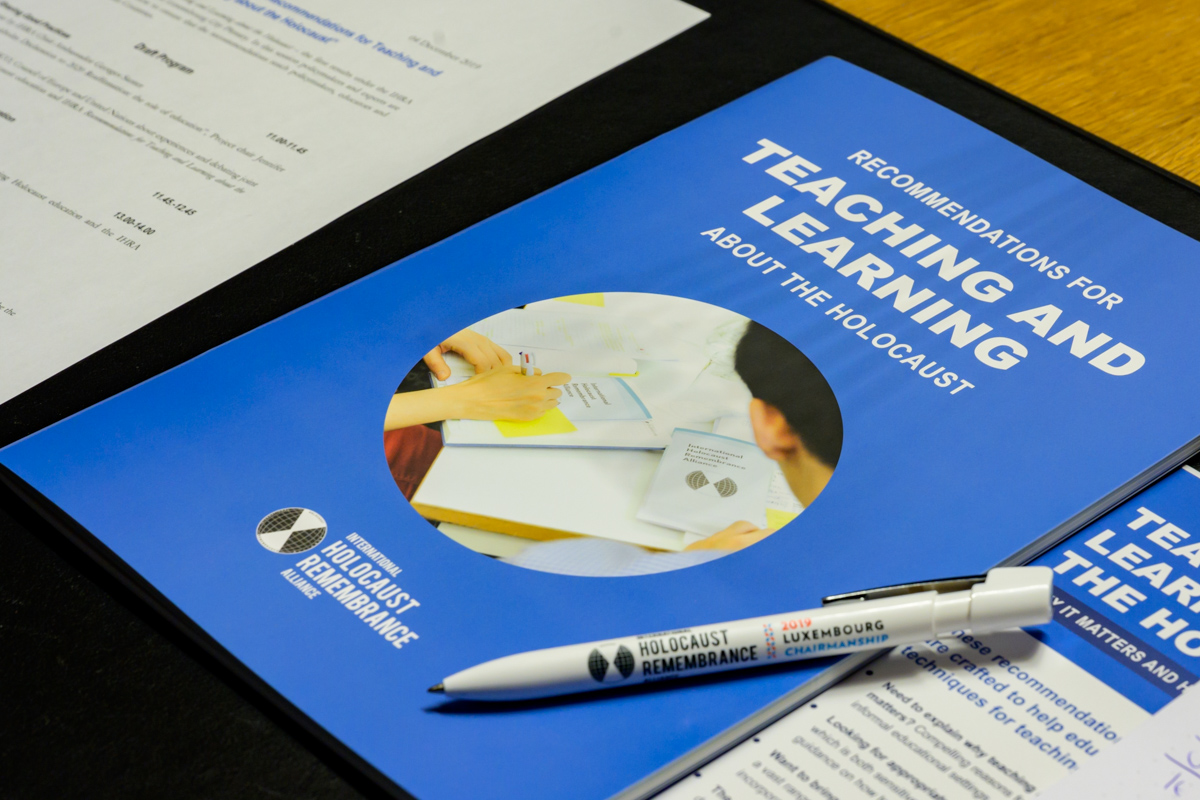
Raoul Wallenberg honored at virtual event
On 17 January, the Embassy of Sweden in Ottawa, in collaboration with OVED for Human Rights, and the Raoul Wallenberg Centre for Human Rights, organized a commemorative event in honor of Raoul Wallenberg’s deeds for humanity. The event was inspired by the recent announcement by the Ontario Government to introduce revisions to the Grade 6 Social Studies curriculum, part of a series of reforms to combat rising antisemitism.
IHRA Chair Ambassador Ann Bernes, whose remarks can be read below, joined many other speakers in highlighting the power that lies within each of us to act against injustice, hatred, and discrimination. The speakers also provided concrete examples of campaigns, toolkits, curriculums, and philosophies that they use to strengthen Holocaust education, remembrance, and research.
Excellencies, ladies and gentlemen, dear friends,
It is an honor to address you in my capacity as Chair of the IHRA and on this particular day when we gather to commemorate and pay tribute to Raoul Wallenberg, the Swedish diplomat and businessman who saved thousands of Jews in Nazi-occupied Hungary, in the face of great danger to himself.
All over the world there are streets, monuments and public institutions dedicated to Wallenberg, as well as prizes and training programs set up to promote and recognize achievements in his spirit. Wallenberg has also been awarded honorary citizenship in several countries, including Canada, and was in 1963 recognized as one of the Righteous Among the Nations by Yad Vashem Holocaust Museum in Israel.
Alongside the many accounts by eyewitnesses of his inspiring deeds and courage, the access to archives has allowed scholars to provide us with an in-depth understanding of, not only what Wallenberg achieved to do, but also how and why. And only last August, the Raoul Wallenberg Academy in Sweden launched a digital museum where the first exhibition allows you to walk through Wallenberg’s hometown Stockholm in his footsteps.
In spite of all these efforts to piece together more and more parts of Wallenberg’s life, there are still question marks surrounding his fate following his arrest by Soviet forces in Budapest on this very day 78 years ago, in 1945. The access to various archives would help in the efforts to understand exactly what happened to him in captivity and this is an aspect and example that I have stressed when I, as Chair of the IHRA, have participated in the launch and promotion of a set of new IHRA Guidelines focused on Identifying Relevant Documentation for Holocaust Research, Education and Remembrance, aimed at assisting archives and other entities in assessing their collections and increasing access to them.
The development and launch of these guidelines form part of the IHRA’s ongoing, collective work on its two current priorities: To safeguard the record of the Holocaust and to counter distortion of the Holocaust.
Priorities that couldn’t be more relevant in a time where more and more survivors and eyewitnesses leave us and Holocaust denial, distortion and disinformation appear in all kinds of contexts.
The aim of our Presidency has, from day one, been to enhance the collective impact of the IHRA by promoting that pledges and priorities are turned into practice and positive change.
A key tool has been to encourage the implementation of the commitments made at the Malmö International Forum held in October 2021. The Malmö Forum approach meant that all participating leaders were asked to go from words to deeds and make concrete pledges in the areas of Holocaust remembrance and education, and combating antisemitism, antigypsyism and racism in all spheres of life, including on social media.
The result was rather astounding: 60 delegations made around 150 pledges covering all the areas of the Forum – and thereby more or less the whole mandate of the IHRA. We will soon present a comprehensive report about the first year of implementation.
We have also paid extra attention to the genocide of the Roma and to antigypsyism – by holding an international conference, by promoting resources dedicated to the issues and by highlighting the discriminatory treatment of Roma fleeing Ukraine.
The motto of the Swedish Presidency of the IHRA is “Together for Impact – Promoting Holocaust remembrance and combating antisemitism and antigypsyism through cooperation and dialogue.”
And after nearly completing our Presidency, we remain convinced that cooperation built on shared values is the only way forward and that the IHRA is more important than ever – and not only as an organization for international action but also as a platform for highlighting and supporting individual action. And here Raoul Wallenberg is, and will forever remain, a role model for the civil courage that we all need to develop, promote and support in order to stand up against evil and defend human rights.
So let us always remember and learn from the legacy of Raoul Wallenberg in our strive for a better world for all.
Sign up to our newsletter to
receive the latest updates
By signing up to the IHRA newsletter, you agree to our Privacy Policy



